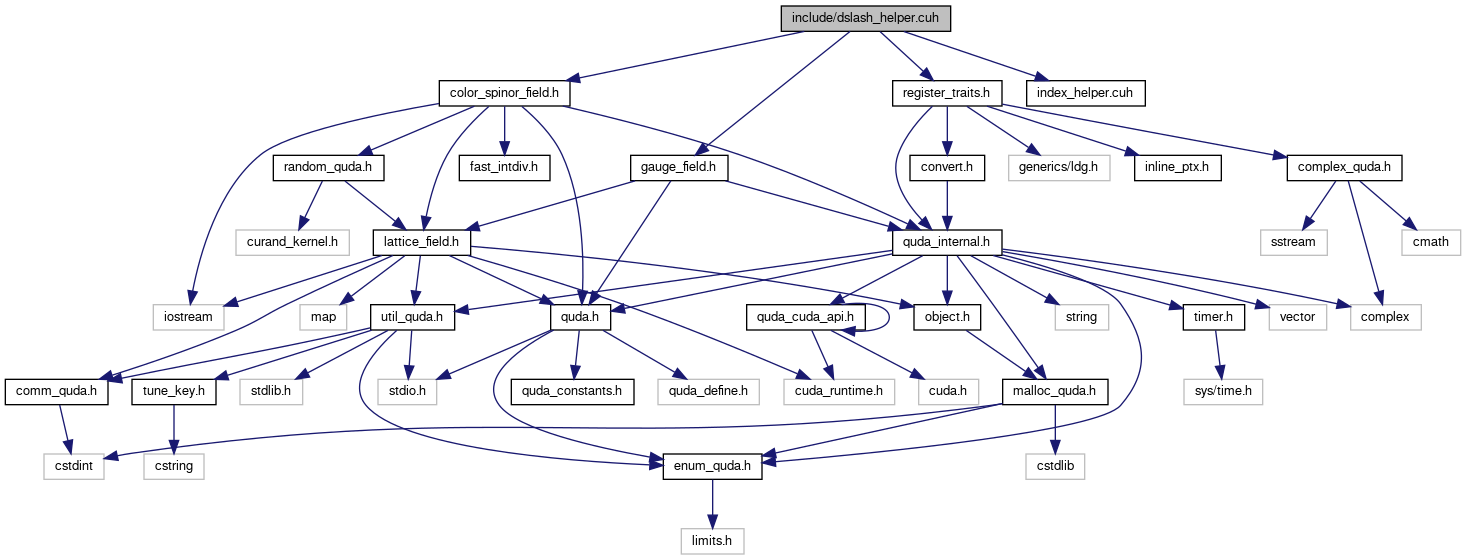#include <color_spinor_field.h>#include <gauge_field.h>#include <register_traits.h>#include <index_helper.cuh>
Include dependency graph for dslash_helper.cuh:

This graph shows which files directly or indirectly include this file:

Go to the source code of this file.
Classes | |
| struct | quda::DslashArg< Float > |
Namespaces | |
| quda | |
Functions | |
| template<KernelType type> | |
| __host__ __device__ bool | quda::doHalo (int dim=-1) |
| Helper function to determine if we should do halo computation. More... | |
| template<KernelType type> | |
| __host__ __device__ bool | quda::doBulk () |
| Helper function to determine if we should do interior computation. More... | |
| template<KernelType type, typename Arg > | |
| __host__ __device__ bool | quda::isComplete (const Arg &arg, int coord[]) |
| Helper functon to determine if the application of the derivative in the dslash is complete. More... | |
| template<int nDim, QudaPCType pc_type, KernelType kernel_type, typename Arg , int nface_ = 1> | |
| __host__ __device__ int | quda::getCoords (int coord[], const Arg &arg, int &idx, int parity, int &dim) |
| Compute the space-time coordinates we are at. More... | |
| template<int dim, typename Arg > | |
| __host__ __device__ bool | quda::inBoundary (const int coord[], const Arg &arg) |
| Compute whether the provided coordinate is within the halo region boundary of a given dimension. More... | |
| template<KernelType kernel_type, typename Arg > | |
| __device__ bool | quda::isActive (bool &active, int threadDim, int offsetDim, const int coord[], const Arg &arg) |
| Compute whether this thread should be active for updating the a given offsetDim halo. For non-fused halo update kernels this is a trivial kernel that just checks if the given dimension is partitioned and if so, return true. More... | |
| template<typename Float > | |
| std::ostream & | quda::operator<< (std::ostream &out, const DslashArg< Float > &arg) |
 1.8.13
1.8.13